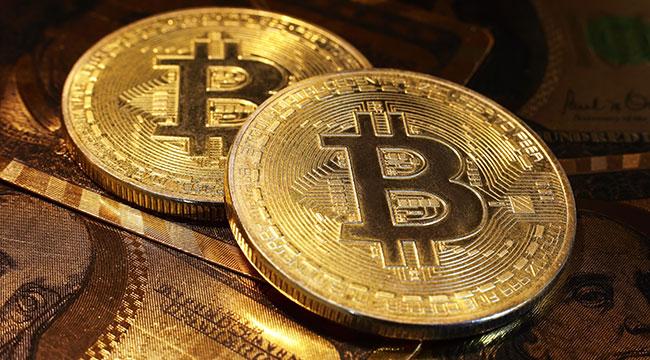
Bitcoin first arrived online in 2009, and it’s been drawing both curiosity and scorn ever since. But, cutting away all the hype, is Bitcoin worth investing in? That depends both on your appetite for risk, and just how much money you’re willing to lose.
To understand Bitcoin, we need to talk for a moment about the money in your wallet. The dollar, and pretty much every other currency in the world, is a “fiat” currency. Not to oversimplify matters, a dollar is worth a dollar more or less because the US government vouches for it. Think of it as a tiny little piece of government reputation: The dollar is stable because the US government is stable, and holds its value, relatively speaking, over time because the US isn’t going anywhere.
But, until 1971, it wasn’t this way at all. Instead, a dollar was basically a gift certificate for a certain amount of gold, tying the value of dollars to the value of gold. This was called the “gold standard.” In theory, at least, you could walk into a bank, slap down a dollar, and walk out with a dollar’s worth of gold. This is not as cool as it sounds. If, for example, we’d had the gold standard between 2012 and 2013, your bank account would have steadily and dramatically dropped in value.
Bitcoin tries to split the difference between the two approaches. Bitcoin is essentially bits of code that are “mined.” There’s only a limited number of Bitcoin, 21 million total, to be precise, and each Bitcoin is unique. So, like gold, its rarity makes it valuable, but unlike gold, there’s no chance a rich Bitcoin mine will be found tomorrow. That rarity is enforced by Bitcoin’s structure and how it’s traded. Each Bitcoin is “verified” by a decentralized network of Bitcoin programs that track the history of each individual Bitcoin. Essentially, there’s a record of every person who buys and sells each unique Bitcoin. Think of it as a digital fingerprint. When you trade a Bitcoin, that fingerprint not only needs to match for the buyer and seller but is also checked against everyone else’s records.
However, gold has a distinct advantage over Bitcoin. If, tomorrow, we decide that gold’s pretty and all, but really not worth anything, you can at least sell your gold to a computer manufacturer or jeweler and get back some of your money. Bitcoin is quite literally worthless outside of Bitcoin trading. In other words, your Bitcoin is only worth what the people buying and trading Bitcoin think it’s actually worth, just like a fiat currency. That makes the value of Bitcoin something of a rollercoaster, although over the long term it’s gone up in value. If that weren’t enough, Bitcoin’s decentralized nature and somewhat hazy legal status add up to a Wild West atmosphere. US dollars deposited in US banks, for example, are insured by the FDIC. If somebody steals your Bitcoin? You’re probably out your money, for good.
So, should you invest? That depends on your goals, and it pays to be a futurist. Bitcoin is built around encryption, and governments are driving more and more resources towards decryption for intelligence purposes. That research could be used to forge Bitcoin, crack open the blockchain network, or otherwise compromise the system. And don’t forget, there’s plenty of reason for crooks to do the exact same thing. In computer security, a breach is always a matter of “when” not “if.” In addition, Bitcoin’s decentralization means you’ll have to be very careful who you associate with. Bitcoin heists are fairly common, and often usually inside jobs. The irony of Bitcoin is the encryption is great, but you’re one hacked password, or unethical web administrator, away from getting completely cleaned out.
If you want to have some fun, or have a high appetite for risk, Bitcoin will be a good way to explore a frontier of digital economics. If you’re looking to grow your retirement portfolio, though, maybe stick to stocks and bonds.
